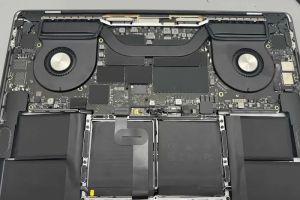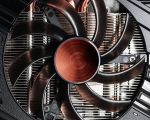Can I Repair Windows 7 from Another Computer's Windows Disk? A Complete Guide
- Understanding Windows 7 Repair Options
- Using Another Computer's Windows Disk for Repair
- Step-by-Step Guide to Repairing Windows 7 from a Different PC's Disk
- Tools and Alternatives for Windows 7 Repair
- Pros and Cons of Repairing Windows 7 with Another Disk
- Preventing Future Windows 7 Issues and Maintenance Tips
1. Understanding Windows 7 Repair Options
If you're experiencing issues with your Windows 7 system, you may be wondering, “Can I repair Windows 7 from another computer’s Windows disk?” The short answer is yes, it’s possible, but it requires careful planning and specific steps to ensure your system gets repaired properly. Windows 7 has several repair options, including using system restore, the built-in repair tool, or even a recovery disk. In this article, we’ll explore how you can potentially fix your system using another computer's Windows disk, and what steps you need to take for a successful repair.
Typically, when a Windows 7 system fails to boot or encounters other critical errors, users rely on recovery tools. These tools are available through a Windows installation disk or recovery partition. However, sometimes having a working Windows 7 disk from another computer can provide the necessary resources to repair your machine, especially if you’ve lost access to the original recovery media.
Before diving into the repair process, it's essential to understand the fundamentals of Windows 7's recovery options, including system restore, repair startup, and command-line utilities. Each method has specific applications, and the approach to fixing your system depends on the nature of the issue you're experiencing.

Action Computers Inc. -- Denver Location
2890 S Colorado Blvd F, Denver, CO 80222, USA
2. Using Another Computer's Windows Disk for Repair
When you’re looking to repair Windows 7 from another computer's disk, the first step is determining if the disk you have access to is compatible with your system. Ideally, the other computer should be running the same version of Windows 7 (e.g., Home Premium, Professional) to ensure compatibility. If the disks are the same version, you can use that disk to boot your system and access various recovery tools.
To perform a repair, you’ll need to use the recovery environment (WinRE) that is included in Windows 7. The process involves booting your system with the disk from the other computer, using the repair features to access recovery options, and then selecting the appropriate repair method based on your specific issue.
In many cases, the issue might be related to system files that are corrupted or missing. By booting into the repair environment, you can run tools such as Startup Repair or use System Restore to return your system to an earlier state before the problem occurred. Additionally, using another computer’s disk allows you to access advanced command-line options for manually repairing system files.

Fix It Computer Repair
2638 Geranium Ln, Fort Collins, CO 80525, USA
3. Step-by-Step Guide to Repairing Windows 7 from a Different PC's Disk
Here’s a simple step-by-step guide on how you can repair your Windows 7 system using another computer's Windows disk:
- Step 1: Insert the Windows 7 Disk – Place the Windows 7 disk from the other computer into the disc drive of the faulty system and reboot it.
- Step 2: Boot from the Disk – You may need to change the boot order in your BIOS settings to boot from the DVD or USB drive. Follow the on-screen prompts to boot into the Windows installation or recovery environment.
- Step 3: Access System Repair Options – Once in the Windows 7 installation screen, click on “Repair your computer.” This will lead you to the system recovery options menu, where you can choose from options like “System Restore,” “Startup Repair,” and “Command Prompt.”
- Step 4: Choose the Appropriate Repair Tool – If your system is failing to start, try using the “Startup Repair” option. If system files are corrupted, you can attempt to use the “Command Prompt” to manually fix issues by running commands like “sfc /scannow” to scan and repair corrupted files.
- Step 5: Restart the System – After completing the repair process, restart the system and check if the problem has been resolved.
This method can work well for fixing minor boot issues or corrupted files. However, it may not be effective for more severe hardware issues or when the operating system is severely corrupted. If you’re unable to resolve the problem using this method, you might need to consider reinstalling Windows 7 or seeking professional help.
4. Tools and Alternatives for Windows 7 Repair
In addition to using another computer's Windows disk, there are several other tools and alternatives that you can use to repair Windows 7. Here are some of the most common options:
- Windows 7 System Repair Disc: If you have a System Repair Disc created from your own computer, you can use it to access recovery options and perform repairs.
- Windows 7 Installation Media: The official installation disk or USB drive can be used for advanced recovery options, including reinstalling Windows or running diagnostic tools.
- Third-Party Repair Tools: There are several third-party repair tools available that can help fix issues like corrupted files, malware, or registry problems. Examples include Reimage or CCleaner for system cleanup.
These tools can be effective alternatives if you don't have access to a working Windows 7 disk from another computer. They can be used for troubleshooting, diagnostics, and fixing common problems without the need for a complete reinstall.
5. Pros and Cons of Repairing Windows 7 with Another Disk
While repairing Windows 7 from another computer's disk is possible, it comes with its pros and cons. Here’s a breakdown:
Pros:
- Quick Access: You can use another computer’s disk to quickly access repair tools, especially when your own system is unresponsive.
- Cost-Effective: Using a spare disk for repairs can save you the cost of professional repairs or the need to purchase new installation media.
- Simple Process: With the right steps, it’s easy to boot into the repair environment and attempt common fixes, such as using Startup Repair or System Restore.
Cons:
- Compatibility Issues: The disk must be compatible with your version of Windows 7, which can limit the options available if the disks don’t match exactly.
- Limited Effectiveness: If the issue is hardware-related or the OS is severely damaged, this method may not resolve the problem.
- Potential Risks: If not done correctly, you could accidentally erase important data or cause further issues.
While using another computer's disk can be a quick and cost-effective solution, it is not always a foolproof fix. If the problem persists or worsens, it might be time to consider more in-depth repair options or professional help.
6. Preventing Future Windows 7 Issues and Maintenance Tips
Once your system is repaired, it’s essential to maintain it to avoid future issues. Here are some tips to keep your Windows 7 system running smoothly:
- Create System Backups: Regularly back up your system to restore it quickly in case of future failures.
- Run Regular System Scans: Use tools like Windows Defender or third-party antivirus software to keep your system free from malware and viruses.
- Keep Your System Updated: Regularly install Windows updates to ensure that your system has the latest security patches and bug fixes.
- Perform Routine Maintenance: Run disk cleanup tools, defragment your hard drive, and remove unnecessary files to optimize system performance.
By following these maintenance steps, you can minimize the risk of future problems and extend the life of your Windows 7 system.






























